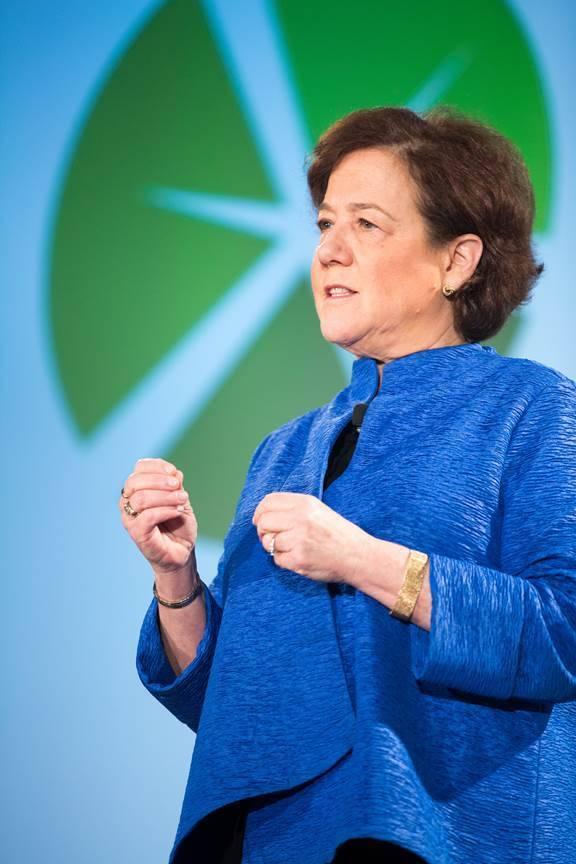
By Aaron Pickering
Last week, sustainability leaders from around the world gathered at the Ceres Conference in San Francisco to compare notes and strategize about how to tackle some of our most pressing challenges – from water scarcity and resource depletion to the mounting impacts of climate change. While there are many motivations for companies to play a leading role in addressing these issues, the most important driver cited by attendees is that sustainability can improve the bottom line. Simply put, sustainability is just good business.
To set the stage, experts speaking at the Ceres Conference discussed the critical role of the clean-energy sector in driving economic growth. Most importantly, it is creating jobs. While President Donald Trump has focused on bringing coal miners’ jobs back despite falling coal production and consumption in this country, American jobs in the clean-energy sector have been growing at a rapid rate. In fact, U.S. jobs in solar energy actually overtook those in oil and natural gas extraction for the first time in 2015. Meanwhile, renewable energy is already cheaper in many parts of the world than fossil fuels.
The bottom-line numbers speak for themselves. According to a study published this week by Ceres*, WWF, CDP and Calvert Investments, Fortune 500 companies saved nearly $3.7 billion through their climate and energy commitments in 2016 alone. In fact, seeing the positive boon to their financials, several of these companies continue to push further, with 82 companies in the Fortune 500 having set or committing to set a science-based goal, and 23 aiming to power 100 percent of their operations with renewable energy. Among those companies are Walmart, General Motors, Bank of America, Google, Apple and Facebook.
Another clear takeaway from the Ceres Conference is that the benefits of sustainability commitments are not limited to any one sector. Power producer NRG, for example, has set science-based targets and committed to cutting emissions 50 percent by 2030, and 90 percent by 2050 from a 2014 baseline. Here in San Francisco, NRG’s vice president of sustainability, Bruno Sarda, discussed progress and announced additional goals, including a commitment to helping customers avoid 120 million metric tons of CO2 emissions by 2020.
Meanwhile, IBM is working against a 2020 renewable energy goal and has already seen big results. With more than 3,000 energy conservation and efficiency projects in 2015 alone, the company has avoided the equivalent of 250,000 metric tons of CO2 and has saved nearly $30 million.
This week, investors and sustainability directors are celebrating progress, but also recognizing that more needs to be done. From advocacy in support of state and federal policies that will accelerate renewable energy growth, to continuing to call for the U.S. to stay the course in implementing the Paris Climate Agreement, the companies who are reaping the economic benefits of sustainability have a message for their peers: it’s time to get on board.
Today’s political reality means that it will be more important than ever to lead with the business case for sustainability, setting aside any additional altruistic motivations. The good news is that it’s an easy case to make.
*Cone client
Aaron Pickering is a Vice President in Cone Communications’ Corporate Social Responsibility & Reputation practice with over a decade of experience in strategic public relations, project management and media relations. Aaron advises corporate and nonprofit clients on how to effectively communicate with diverse stakeholders, articulate their vision and build brand awareness. He has worked with companies and organizations across industries and on a range of issues – from labor and human rights to the environment – to tell compelling stories, cultivate media relationships and engage stakeholders to launch strategic public relations campaigns that change minds and drive results. Aaron also teaches as an adjunct professor at The George Washington University.
TriplePundit has published articles from over 1000 contributors. If you'd like to be a guest author, please get in touch!














